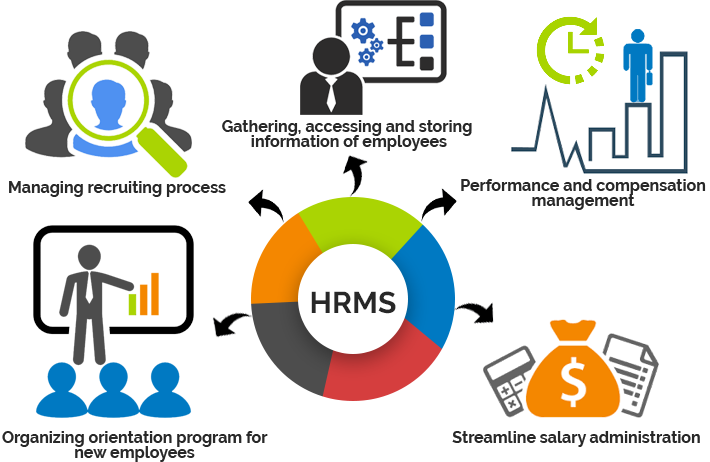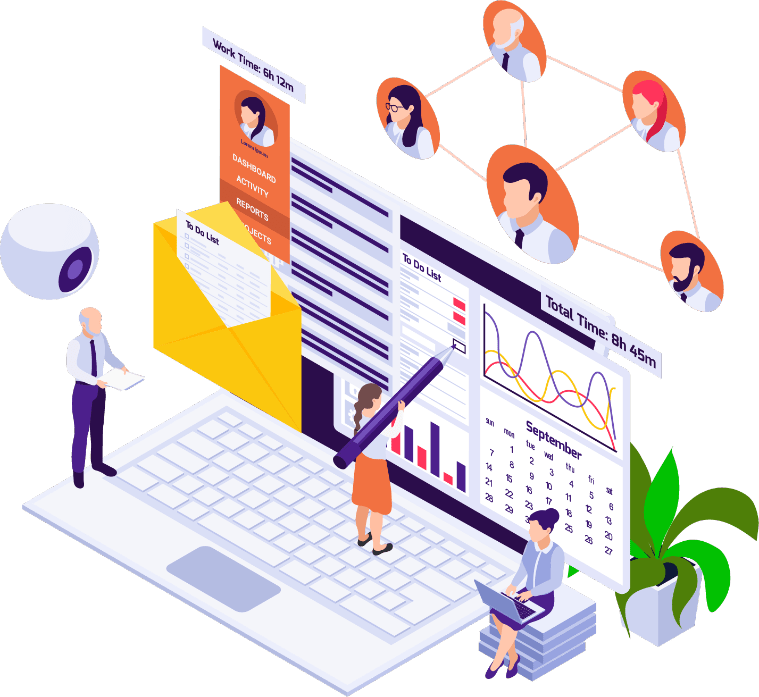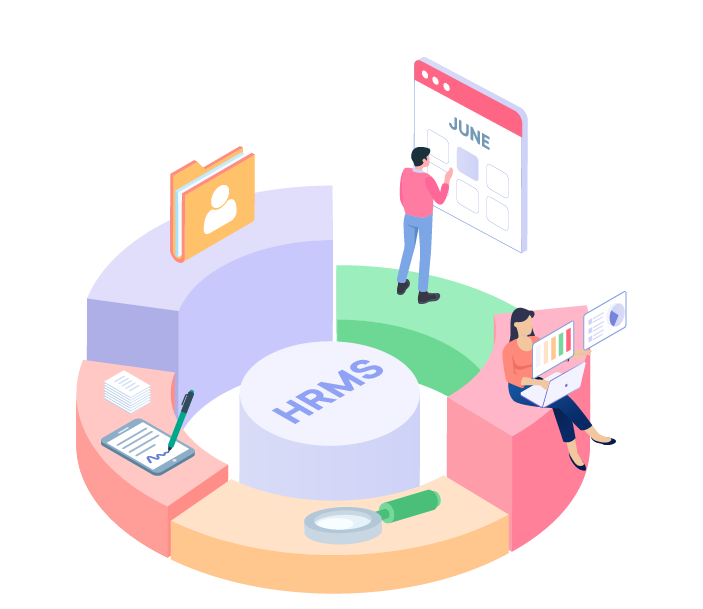
How can we help you today?
Registered Office
Infowan Technologies Pvt Ltd
Mumbai-401107. INDIA.
Contact Details
+91 98201 97205
+91 98201 26871
+91 98670 74415
support@infowan.net
info@infowan.net
In the evolving landscape of human resources, many professionals and business owners ask the crucial question: what is HRMS system and how can it benefit their organizations? Simply put, a Human Resource Management System (HRMS) is a powerful software solution designed to automate and integrate various HR functions. These include recruitment, payroll, attendance, performance management, and more.
Understanding what is HRMS system is essential in today’s business ecosystem, where digital transformation is driving efficiency and better employee engagement. Companies that adopt an HRMS system reduce manual errors, improve compliance, and empower their workforce through streamlined processes. This article will take you through the definition, core features, benefits, and how to choose the right HRMS system tailored for your business needs.
Many businesses in India are now turning to specialized solutions like HR and Payroll Software India to address local compliance and operational challenges effects

To answer what is HRMS system precisely, it is a centralized platform that manages and automates a wide array of human resource tasks. The primary purpose of an HRMS system is to replace traditional manual HR processes with automated workflows that save time and reduce errors.
An HRMS system typically covers:
Many people confuse HRMS with HRIS (Human Resource Information System) and HCM (Human Capital Management), so here’s a simple way to understand their differences:
By understanding what is HRMS system, companies can adopt solutions that provide both operational efficiency and strategic HR capabilities.
When asking what is HRMS system, it is crucial to explore the key features that make it indispensable for modern businesses. A comprehensive HRMS system automates and supports the entire employee lifecycle, ensuring smooth HR operations.

Modern HRMS systems offer employees direct access to their personal HR data, enabling:
A crucial part of understanding what is HRMS system lies in its ability to manage workforce attendance effectively:
One of the most important reasons to ask what is HRMS system is to understand the tangible benefits it offers to organizations.
Implementing an HRMS system dramatically reduces the time spent on manual HR tasks and minimizes human errors in payroll, attendance, and compliance reporting. Automation ensures that processes are streamlined and data is accurate.
An HRMS system fosters transparency by allowing employees easy access to their HR information. This empowerment leads to better employee satisfaction and engagement as they feel more in control of their personal and professional information.
Automation reduces the administrative burden on HR teams, allowing them to focus on strategic initiatives. It also cuts costs related to manual errors, compliance penalties, and paper-based systems.

Understanding what is HRMS system today also means keeping an eye on evolving trends that shape its future.
Modern HRMS platforms are integrating AI to enhance recruitment by screening candidates, predicting employee attrition, and providing insights for workforce planning.
There is a growing shift from traditional annual reviews to real-time feedback mechanisms, allowing managers and employees to address performance issues promptly.
Post-pandemic work environments have made mobile access and remote capabilities indispensable for HRMS platforms, ensuring uninterrupted HR services regardless of location.
If you’re wondering what is HRMS system and how to pick the best one for your company, consider the following factors:
Assess your current HR challenges and future growth plans to determine which features are critical.
Decide between cloud-based solutions offering flexibility and lower upfront costs or on-premise solutions providing greater control and security.
Answering what is HR system also means introducing you to practical solutions like Infowan HRMS, designed for businesses seeking efficient, all-in-one HR management software.
Infowan HRMS combines user-friendly technology with powerful features to help businesses improve HR efficiency, reduce errors, and engage employees effectively.
In summary, what is HRMS system is a critical question that unlocks the potential to transform how organizations manage their workforce. By automating routine tasks, improving data accuracy, and empowering employees, an HRMS system drives business growth and operational excellence. Choosing the right HRMS, such as Infowan, ensures your HR functions are future-ready, scalable, and aligned with modern workplace needs.
If you are ready to experience the benefits of a robust HRMS system, Infowan HRMS is your trusted partner to transform your HR management.
Q1. What is HRMS system, and why is it important for businesses?
An HRMS system is software that automates and integrates human resource functions, improving efficiency, accuracy, and employee satisfaction. It is vital for reducing manual work and supporting business growth.
Q2. How does an HRMS system differ from HRIS and HCM?
While HRMS focuses on automating HR processes, HRIS is mainly a data management system, and HCM includes strategic workforce planning and talent management beyond basic HR functions.
Q3. Can an HRMS system be customized to fit specific business needs?
Yes, most HRMS platforms offer customization options to match a company’s size, industry, and unique HR workflows.
Q4. Is mobile access necessary for an HRMS system?
Mobile access is essential as it allows employees and managers to interact with HR functions anytime and anywhere, increasing flexibility and engagement.
Q5. How does GPS attendance work in an HRMS system?
GPS attendance uses employees’ mobile locations to record check-ins and check-outs, ensuring accurate tracking especially for remote or field workers.
Q6. Will using an HRMS system help with legal compliance?
Yes, an HRMS system automates statutory compliance and reporting, reducing the risk of penalties and audits.
Q7. What size businesses benefit most from an HRMS system?
Small and mid-sized businesses benefit significantly by automating HR tasks and improving process efficiency.
Q8. How does Infowan HRMS stand out in the market?
Infowan HRMS offers an all-in-one platform with unique features like GPS attendance, one-click payroll, mobile self-service, and comprehensive performance tools, designed for growing businesses.
Best HR Software in India | Top HR Software in India | What is an HR System? | Online HR Management Software | Best Payroll Software in India | Employee Payroll Management System | What is a Payroll System? | What is Payroll? | What is HRMS? | What is HR Management? | 7 Roles of HRM | What is Human Resources? | Top HR Interview Questions | What is HR? | HR Analytics Explained | What is HR Compliance? | Human Resource Management Guide | Best HRMS System | HR Management System Software | HR Software for Small Business | Best HRMS Employee Self Service | What are the Functions of HRM | Functions of HRM | Human Resource Accounting | Difference Between HRM and HRD | Best HRMS Software in India | Top HRMS Software in India | HRMS Companies in India | What is 3rd party payroll | Payroll Software list | What is payroll management in HR